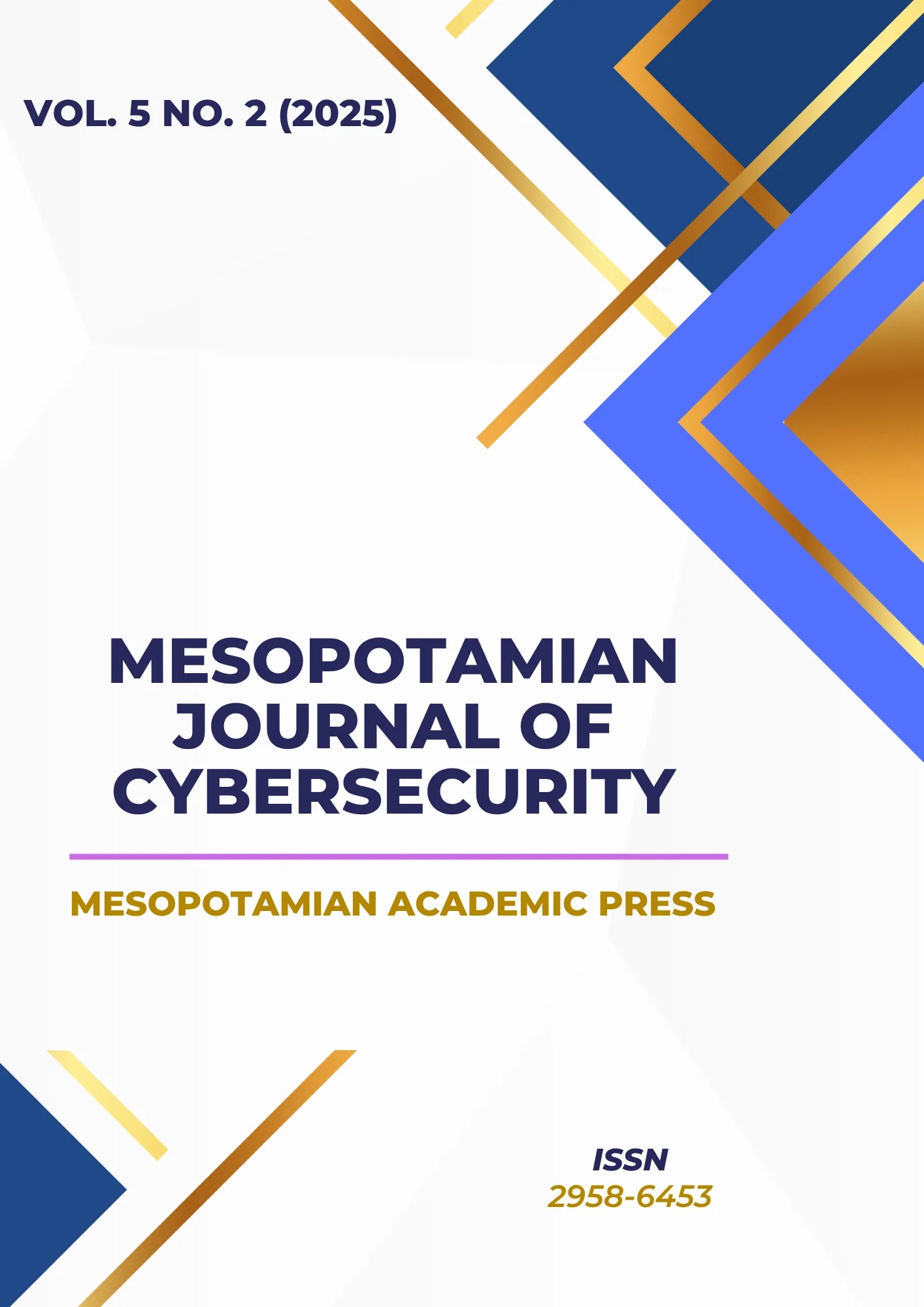Abstract
The increasing prevalence of biometric authentication systems as part of the organizational cybersecurity ecosystem highlights the need to gain further knowledge of both legal and technical considerations related to biometric data protection. The inherent nature of biometric data (unique to an individual and unchangeable) elicits a vulnerability to cyber abuse along with privacy risks. This study discussed the legal landscape regulating biometric data, underscoring our awareness of legislation inadequacies in regions of the world, with a specific reference to Iraq, and its comparison to international standards that employ laws (GDPR, EU AI Act). This study indicated that there is an urgency in establishing robust, effective, enforceable protections for biometric information from unauthorized collection and circumvention. In terms of cybersecurity practices, ensuring the integrity, confidentiality and availability of biometric data are key. When there are ineffective legal and regulatory measures, the risks of exposing sensitive data and forgetting biometric security have significant potential to degrade the effectiveness of biometric systems for secure authentication. This study suggests that technological innovations with integrated legal considerations will aid in the creation of legitimate biometric systems that can improve quality and security. In addition to the pressing legality themes, this study explores a practical illustration of deep learning through a ResNet50-based model to classify iris health conditions. The model for classifying an iris as "mature" or "immature" has the potential to ensure the reliability of authentic biometric systems, and the model has a validity score of 98%. This specific example presents the employability of AI in potentially advancing biometric security. This study explored ways to recognize the dual structure of legal impact and technological developments in this field to ultimately create a balance where biometric systems remain palatable and convey an ethical obligation.
Keywords
artificial intelligence
Biometric Authentication
Cybersecurity
data protection
deep learning
Health-Aware Biometrics
Iris recognition
law
Legal and Ethical Challenges
ResNet50
